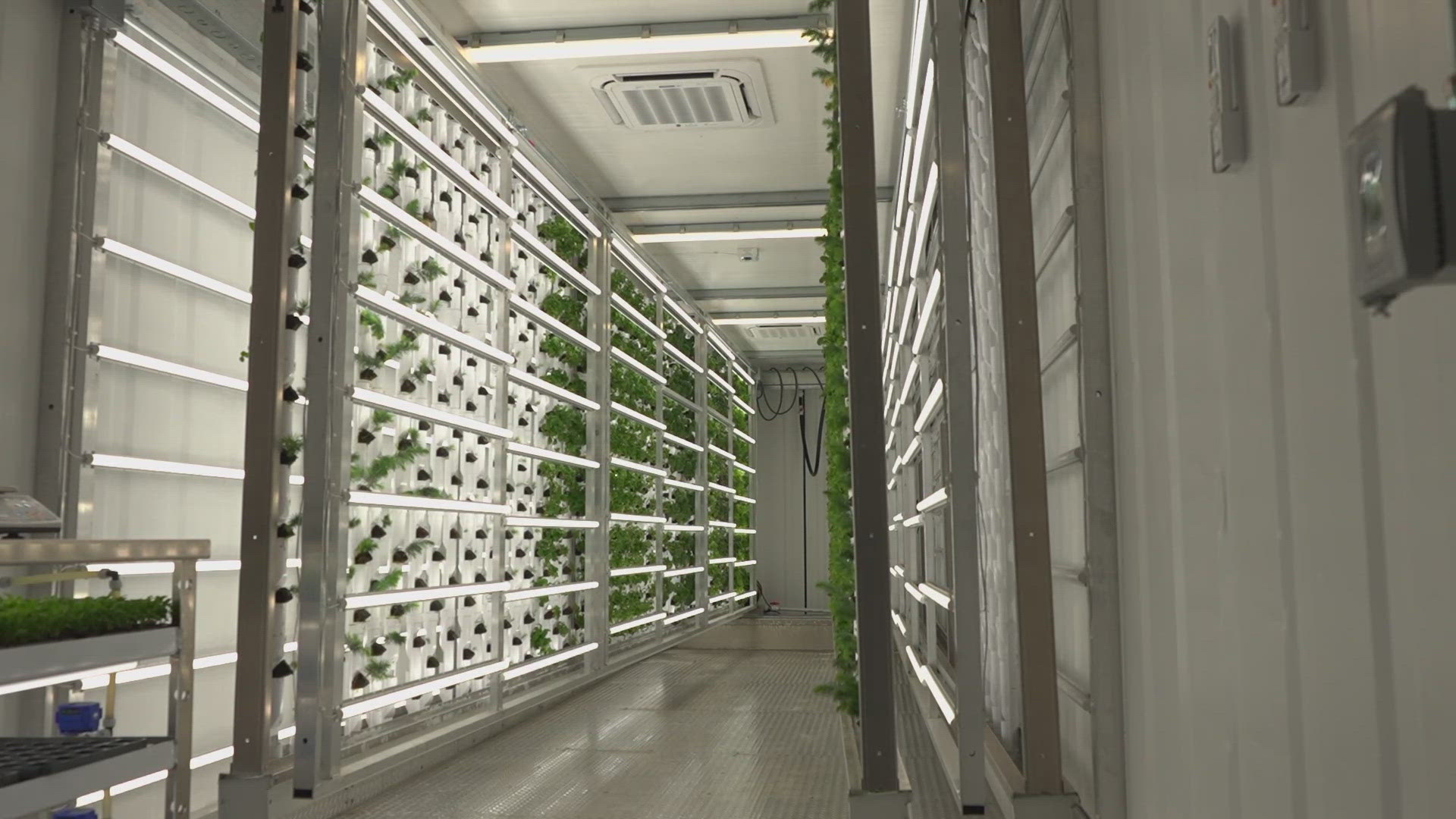SEDALIA, Colo. — Today, they're growing in a shipping container. Soon, hopefully, they'll take root in Colorado's forests.
It's a nontraditional start for hundreds of baby trees meant to reforest areas burned by wildfire, in a project between a Colorado-based power cooperative and a group of innovative farmers.
CORE Electric Cooperative serves about 180,000 member households along Colorado’s Front Range and foothills, across about 5,000 square miles. The company said it was looking for new ways to approach wildfire mitigation and reforesting areas previously burned.
“Our wildfire mitigation plan is a huge part of our business and how we’re operating for our members,” said interim CEO Pam Feuerstein. “And another layer of that is how do we reforest the forest there? Keep our forests healthy? And that’s a way to prevent wildfires, actually.”
CORE has teamed up with FarmBox, a fellow Sedalia, Colorado-based business that builds climate-controlled farms.
CORE purchased a FarmBox hydroponic farm where, inside an upcycled, climate-controlled shipping container, a team of innovative farmers and researchers has started a reforestation program. FarmBox employees, in partnership with CSU Spur, are growing tree seedlings of Colorado native tree species to eventually plant in wildfire-affected areas across the state.
A spokesman for CORE said the cooperative invested about $200,000 for a three-year pilot project with FarmBox.
“We’re very excited about the opportunity that we can use these farms primarily because they use 98% less water,” said FarmBox CEO Rusty Walker. “It’s going to have a huge impact on where we can put containers and how much water they use.”
“We want to grow the types of trees we're losing in wildfires — particularly in this area,” he added. “That’s what we’ll concentrate on first, but our potential is unlimited.”
The shipping container serving as a home to the baby trees is located in Sedalia. Nick Brooks is the operations manager there, overseeing the tree project, among others.
“Our nature is what makes Colorado ‘Colorado.’ Our forest, mountains, lakes and trees,” he said, offering perspective as someone who grew up in this state and watched wildfires burn near his own community. “To have an opportunity to not just grow food for people but to grow things that better my community is really, really valuable.”
Brooks said this type of modern-day farming is more about managing the technology of the box: the water tank, the temperature and lighting, and working with researchers to collect data about nutrients, growth parameters, and more. They have a few different trials running at the same time, with a few hundred tree seedlings in each trial. Right now, they’re growing Colorado blue spruces.
“They’re fast growing. They’re very hardy. And they’re native to Colorado, which is the most important part to us,” Brooks said.
CORE said they’re still determining the best location to plant the trees and are in conversations now about options on public and private land. But they hope to reforest areas burned by wildfire like, for example, the burn scar from the Hayman Fire, which burned in 2002.

